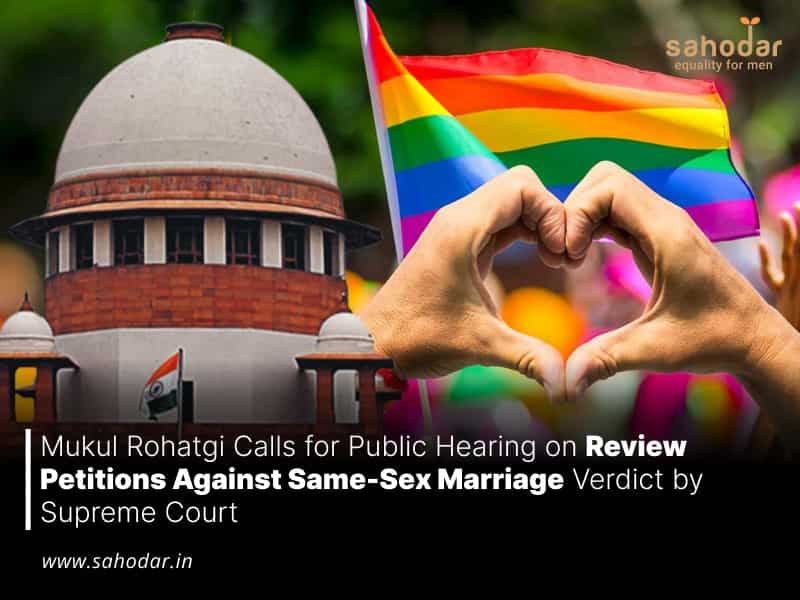CJI Chandrachud said that he will examine the request and take a call.
On Thursday, Senior Counsel and former Attorney General Mukul Rohatgi expeditiously moved an application before the Supreme Court, seeking an open court adjudication of the review petitions contesting the apex court’s pronouncement in the matter of same-sex marriage.
Before a bench presided over by Chief Justice of India (CJI) DY Chandrachud, Rohatgi asserted that the review petitions necessitate an open court hearing. He underscored that the Constitution bench, which rendered the original verdict, unanimously acknowledged that the denial of the right to marry for individuals of the same gender amounts to discriminatory treatment. Despite this unanimous recognition, relief was withheld. Consequently, Rohatgi urges a reevaluation, emphasizing the imperative of an open court forum for the proceedings.
“All judges agree that there is discrimination… If there is discrimination then there has to be a remedy. Lives of large number of people depend. We have urged for open court hearing. It is to be listed on November 28. We are seeking open court hearing,” he said
Chief Justice Chandrachud stated that he will assess the request and make a decision.
“We will look at it and decide,” the CJI responded.
Typically, review petitions are considered within the internal confines of the Supreme Court, absent oral advocacy. However, certain cases of heightened significance or those entailing capital punishment may warrant open discourse.
On October 17, a Constitutional Bench, comprising Chief Justice of India (CJI) DY Chandrachud and Justices Sanjay Kishan Kaul, S Ravindra Bhat, Hima Kohli, and PS Narasimha, delivered a judgment dissenting against the recognition of same-sex marriages. The pronouncement contended that prevailing legal frameworks do not encompass the right to marry or the prerogative of same-sex couples to engage in civil unions, deferring such considerations to legislative intervention by the Parliament.
Additionally, the judgment precluded the recognition of rights for same-sex couples to adopt children. While Justices Bhat, Kohli, and Narasimha comprised the majority opinion, with Justice Narasimha offering a concurring perspective, CJI Chandrachud and Justice Kaul dissented through separate judgments. Despite divergent viewpoints, unanimity prevailed in acknowledging the absence of an unqualified right to marriage, thereby precluding same-sex couples from asserting it as a fundamental right.
Moreover, the judgment uniformly rejected challenges against stipulations within the Special Marriage Act. The majority, including Justices Bhat, Kohli, and Narasimha, posited that civil unions between same-sex couples lack legal recognition, further barring the entitlement to adopt children. Conversely, CJI Chandrachud and Justice Kaul, in their respective minority opinions, advocated for the recognition of civil unions for same-sex couples and their consequential entitlement to adopt children, contravening the majority stance.

